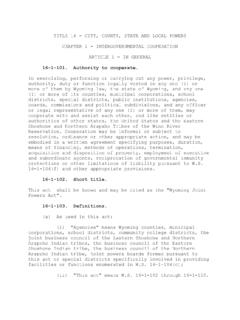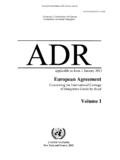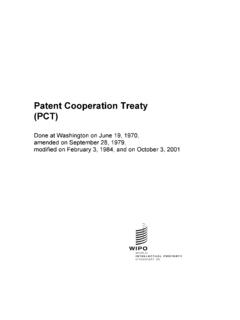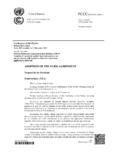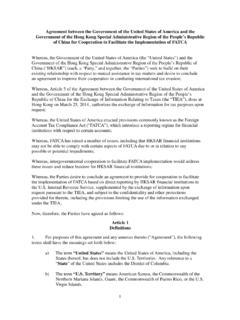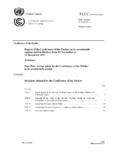Transcription of BrexitLawNI Policy Report
1 Report :Brexit and The Peace ProcessPolicy Report : Brexit and The Peace Process3 BrexitLawNI Policy Report : Brexit and The Peace ProcessExecutive SummaryBrexit and the Peace Process The European Union has provided significant financial and political support for the peace process in Northern Ireland (NI) since the 1980s. UK and Irish membership of the European Union (EU), formerly the European Economic Community (EEC), has been crucial to improved Anglo-Irish relations since both joined the EEC in 1973. The EU has also featured prominently in the key agreements between the two governments from the Anglo-Irish Agreement (1985) onwards and it is embedded in the architecture of the Good Friday Agreement (1998).
2 The decision by the UK government to exit the EU has quite profound potential consequences for the peace process in Northern improvement in Anglo-Irish relations which has evolved as a by-product of both the UK and Irish governments being members of the EU has been crucial in embedding habits of cooperation between the two governments as co-guarantors of the Good Friday Agreement and as stewards of the broader peace has had significant consequences for political relations in NI. 56% of the overall electorate of the jurisdiction voted to remain in the EU. Almost 90% of nationalists voted to remain, whilst 66% of unionists voted to leave. Brexit contributed to the collapse of the power-sharing executive in (NI) and remains a formidable obstacle to it being re-established.
3 As one unionist MLA told the BrexitLaw NI team, Brexit has provoked Irish nationalists in NI in particular, with a sense that English nationalists have come in over their heads and denied a part of their identity which was critical to them feeling comfortable about living here. Brexit has had a political impact across the island of Ireland in mainstreaming discussion on Irish reunification an issue that appeared to have been settled by the Good Friday Agreement. The Irish government successfully argued for the inclusion of provisions in the EU s negotiation guidelines to permit NI to re-join the EU as part of a united Ireland similar to the process deployed by unified Germany after the fall of the Berlin Wall.
4 Former DUP First Minister Peter Robinson has cited the lack of planning associated with Brexit as an example to highlight the need for contingency planning on this issue referring to debates on reunification as the elephant in the room that is positioning to squat on their [unionist] laps. Concerns have also been expressed by some unionist politicians and others that the increased focus upon Irish reunification may have an unsettling effect on loyalist paramilitaries. To date in the Brexit related discussions, there has been very little detailed attention given over to the human rights, equality and political identity concerns of the unionist community in Northern Ireland as part of the renewed focus on Irish and Northern Ireland: The Constitutional, Conflict Transformation, Human Rights and Equality BrexitLawNI .
5 BrexitLawNI is a collaborative ESRC-funded research project between the Law Schools of Queen s University Belfast and Ulster University, and the region s leading human rights organisation, the Committee on the Administration of Justice (CAJ). Our project examines the constitutional, conflict transformation, human rights and equality consequences of Brexit. Northern Ireland (NI) (along with Scotland) voted to remain in the European Union (EU); it is the region of the United Kingdom (UK) most likely to be negatively affected by the decision to leave the EU.
6 Many complex questions have been arising, with significant legal and constitutional consequences that demand considered reflection. This initiative has aimed to meet this need by disentangling the legal elements of Brexit with regard to Northern Ireland, and presenting and communicating the related implications for Policy and practice in user-friendly main outputs for this project are the Policy reports covering the 6 themes of the project: the peace process; north-south relations; border controls and free movement in and between Northern Ireland, the Republic of Ireland and Britain; xenophobia and racism in Northern Ireland; the impact on socio-economic rights.
7 And wider human rights and equality : (Grant Reference ES/R001499/1)AuthorsThe following reports were authored by the members of the BrexitLawNI team: Professor Colin Harvey (QUB), Dr Amanda Kramer (QUB), Professor Kieran McEvoy (QUB), Dr Anna Bryson (QUB), Professor Rory O Connell (UU), Brian Gormally (CAJ Director), Daniel Holder (CAJ Deputy Director), Fidelma O Hagan (CAJ), Emma Patterson-Bennett (CAJ), Gemma McKeown (CAJ).For further informationWebsite: : @BrexitLawNIFacebook: : ISBN: 978-1-909131-74-3 2018 Reports published 14 September 2018 The Reports were designed by Colin Slack: By:Project Partners:Brexit Law NIPolicy Report : Brexit and The Peace Process45 BrexitLawNI Policy Report : Brexit and The Peace ProcessBrexitLawNI Policy Report : Brexit and The Peace ProcessA number of failed legal challenges to the out-workings of Brexit in NI have highlighted the limits of law as a means of redress for those opposed to Brexit.
8 In addition, the removal of the human rights and equality protections associated with the EU Charter on Fundamental Rights and Freedoms, enforceable through the European Court of Justice, has been cited by some nationalist commentators as an additional factor in nationalist disillusionment with is widely regarded as having been (as one spokesperson described it) manna from heaven for republican dissidents opposed to the peace process and the Good Friday Agreement. From their perspective, particularly if Brexit results in some form of hard border , Brexit will bring home the reality of partition previously obscured by a largely invisible border and the constitutional settlement of the Good Friday Agreement.
9 Concerns about a hard border as a result of Brexit are widely shared including by the Chief Constable of the Police Service of Northern Ireland because any such installations would be fair game for attack in the minds of republican are also significant concerns amongst the PSNI and other security officials that Brexit will have a deleterious effect on their capacity to counter organised crime and cyber-crime as well as dissident republican violence. Much of the information sharing and other practical cooperation between the PSNI and Garda S och na is currently done through Europol and other EU regulatory : yAvoid a hard border on the island of Ireland at all costs.
10 Any such border would further deteriorate political relations within NI, between NI and the ROI, and between the UK and Irish governments. It would also, inevitably, become a target for dissident republicans opposed to the peace process. yAs suggested by the T naiste, Simon Coveney, the UK and Irish governments should revisit and enhance existing bilateral cooperation mechanisms between the governments to safeguard habits of cooperation linked to their responsibilities as co-guarantors of the Good Friday Agreement and stewards of the peace process. yAgreements need to be reached between the UK government, the Irish government and the EU with regard to continued funding on peace process related work in NI and the border region beyond Brexit.
